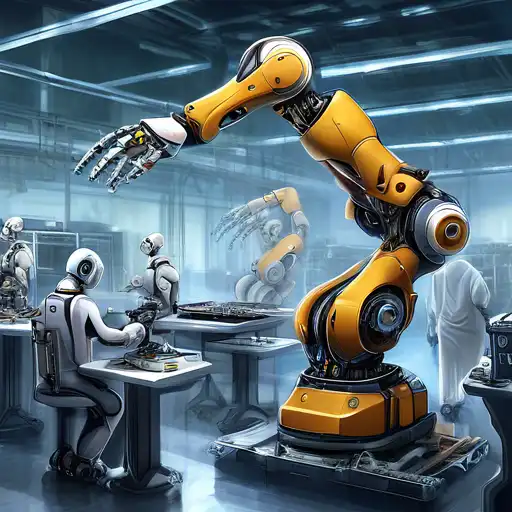The Revolutionary Impact of Robotics on Modern Manufacturing
In the heart of the industrial revolution, the introduction of robotics into manufacturing processes has marked a pivotal shift towards efficiency, precision, and scalability. This transformation is not just about replacing human labor but enhancing capabilities, reducing errors, and opening new avenues for innovation.
Enhanced Efficiency and Productivity
Robotics technology has significantly increased production rates by operating 24/7 without fatigue, unlike human workers. This relentless efficiency allows manufacturers to meet growing demands without compromising on quality or delivery times.
Precision and Quality Control
With robotics, the margin for error diminishes drastically. Automated systems are programmed to perform tasks with impeccable precision, ensuring that every product meets strict quality standards. This level of consistency is challenging to achieve manually.
Cost Reduction and Scalability
Although the initial investment in robotics can be substantial, the long-term savings are undeniable. Reduced labor costs, minimized waste, and lower error rates contribute to a healthier bottom line. Moreover, robotics offers scalability, allowing businesses to adjust operations based on demand without significant additional costs.
Innovation and Future Prospects
The integration of robotics in manufacturing is just the beginning. With advancements in artificial intelligence and machine learning, the potential for smarter, more adaptive manufacturing processes is limitless. This evolution promises to redefine industry standards and consumer expectations.
For more insights into how technology is shaping industries, explore our technology trends section.
Challenges and Considerations
Despite the benefits, the transition to robotic manufacturing comes with its set of challenges. The need for skilled personnel to operate and maintain these systems is critical. Additionally, businesses must consider the ethical implications of automation on employment.
In conclusion, robotics is transforming manufacturing by making it more efficient, precise, and scalable. As technology continues to evolve, the possibilities for further innovation are boundless. Embracing this change is not just an option but a necessity for businesses aiming to stay competitive in the modern market.
Discover more about automation in industry and how it's revolutionizing traditional practices.
